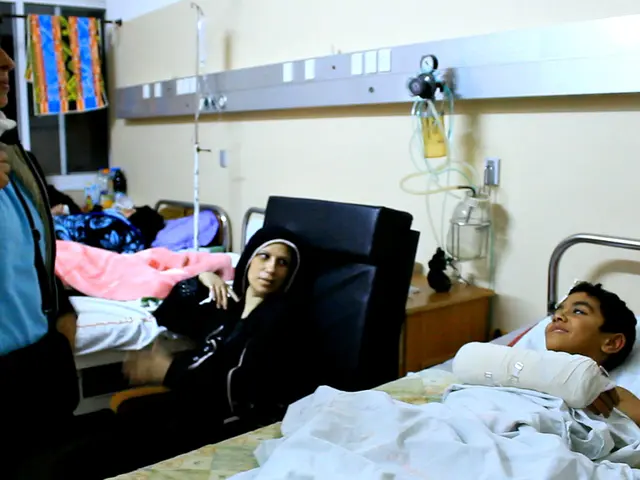Mourning a Mother's Death: Strategies for Daughters to Find Comfort
The loss of a mother can be a profound and life-altering experience, affecting individuals in various ways. According to several studies, women are more likely to be impacted by the loss of a mother than men, experiencing a greater decline in self-esteem, a lower level of personal mastery (personal growth), and more often turning to binge drinking as a coping mechanism.
Everyone's experience with grief is unique, and it's essential to remember that there is no right or wrong way to grieve. However, the loss of a mother can lead to a host of psychological and health consequences, including increased risk of depression, anxiety, prolonged grief disorder, stress-related physical symptoms such as high blood pressure and heart problems, impaired immune function, and delayed wound healing. These effects are linked to elevated stress hormones like cortisol and adrenaline during grief, which can lead to both mental health challenges and somatic health issues. Women may also experience emotional difficulties such as loneliness, identity struggles, and decreased psychosocial resilience.
If grief persists for more than a year or impairs daily functioning, speaking with a mental health professional may be beneficial. Local support groups, online chat forums, and mental health professionals can provide assistance during the grieving process. Additionally, resources like the 988 Suicide and Crisis Lifeline, Crisis Text Line, and Befrienders Worldwide are available for immediate help during a mental health crisis.
Honoring a mother's memory can take various forms, such as donating to her favourite charity or achieving a personal goal she always wanted. Focusing on happy memories, such as pictures, books, or keepsakes, can provide comfort during this difficult time. Other maternal figures, like close friends or relatives, can offer guidance and understanding after the loss of a mother. Offering support to others who have experienced parental loss can also be a meaningful way to cope with grief.
Several books may help navigate the grieving process, including "Healing After the Loss of Your Mother: A Grief & Comfort Manual" by Elaine Mallon, "Motherless Daughters: The Legacy of Loss" by Hope Edelman, and "How to Survive the Loss of a Parent: A Guide for Adults" by Lois F. Akner with Catherine Whitney.
It's important to remember that grief is a natural response to loss and that it's okay to seek help when needed. The Diagnostic and Statistical Manual of Mental Disorders (5th ed.) lists normal emotions in the year following parental loss, including regret, remorse, anxiety, guilt, emptiness, rage, anger, sadness, and numbness.
Mindfulness, the ability to focus on the moment and not follow thoughts down an emotional path, can help manage painful memories related to the loss of a mother. By focusing on the present and finding ways to honour and remember your mother, you can begin to heal and find a new sense of normalcy.
Losing a mother can mean a loss of an important part of your support system. However, it's essential to remember that you are not alone. Reach out to friends, family, and support groups, and don't hesitate to seek professional help if needed. By taking care of yourself and seeking support, you can navigate the grieving process and begin to heal.
Read also:
- Carpometacarpal joint osteoarthritis: Characteristics, origins, remedies
- Doctors Specializing in Genetics and Their Part in Preventive Healthcare
- Unconventional methods for managing Crohn's disease: a look at possible remedies.
- Banteng's Vanishing Act: Separating Truth from Myth in the Realm of Forgotten Fauna








